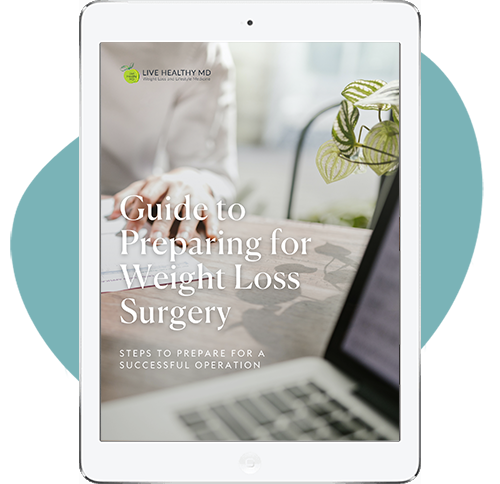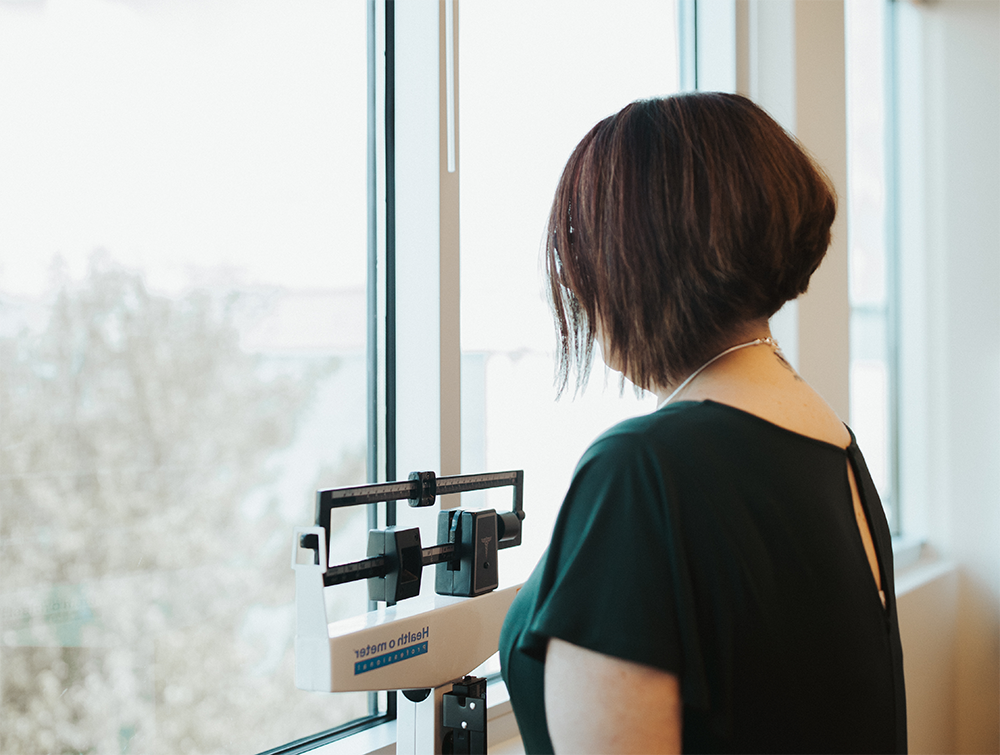
The decision to use surgery as a treatment for the disease of obesity is one that takes a considerable amount of thought. Most patients will spend the better part of a year researching their options for treatment. At Live Healthy MD, we take this decision seriously and encourage our patients to get the most information as possible. In the past couple of blogs I have written, we have explored the process of considering weight loss surgery. Today I want to talk more about the actual process leading up to surgery.
Beginning the Weight Loss Surgery Process
If an individual is serious about losing weight and wishes to use surgery as their treatment option, the process usually begins by attending an informal informational seminar. The seminars are typically held at the programs affiliated hospital. The seminars are meant to provide patients with general information on weight loss surgery and the process involved. In our program at Live Healthy MD, we do not require are patients to attend the seminars. Instead, many of our patients are referred to us and will make an initial consultation with a surgeon. At this point a formal process of education begins.
After the initial consultation with the physician, the patient will proceed with a two-track evaluation.
Education
The first track involves education. We encourage all patients to include their family members in this decision-making process so that the families understand what each patient has to do in order to be successful with their weight loss. Most programs require their patients to see a nutritionist to be educated about losing weight, as well as maintaining that weight loss long-term. In our program, all patients attend a class with one of our nutritionists. Long-term follow-up with our nutritionist is always free. We feel that it is necessary for overall patient success to have routine follow-ups.
Nutritional Evaluation
In addition to the nutritional evaluation, all patients will be seen for a psychological screening. This involves, in most programs, completing a personality inventory. This evaluation helps the psychologist understand the patient's likelihood for long-term success or failure. At Live Healthy MD, Dr. Connie Stapleton provides a thorough evaluation with her personal interview and testing, along with a multi-step educational program focused on behavior modification.
Procedure Evaluation
The third component of the educational pathway involves the surgeon. In our program, all patients must attend a surgical workshop where we will discuss the aspects of the various surgical procedures. During this workshop, the surgeon will focus on the technical aspects of the operation and discuss the potential risks of the procedures. We will review videos of the procedure so that every patient has a clear understanding of how the surgical operations work.
Medical Evaluation
In addition to the educational pathway, patients must undergo an extensive medical evaluation. This is to ensure that every surgery is performed safely. Most programs will perform an upper endoscopy, EGD, in order to look in the stomach to ensure there is no pre-existing diseases involving the stomach. When we do this test, we are looking for how the hernia switch can impact the type of procedure that we might perform. We have found patients in the past who had cancer, which we were able to treat prior to any surgical weight loss procedure.
Health Evaluation
Along with to the endoscopy, most patients will undergo a health evaluation. A consultation with the appropriate experts, such as a cardiologist or a pulmonologist, may be necessary. The specialist will then determine if further heart and lung testing is necessary in order to address pre-existing diseases prior to any surgical procedure. If we suspect that the patient has sleep apnea, a sleep study may be ordered in order to treat this condition prior to surgery. One of the more serious risks of surgery in the morbidly obese patient population are blood clots. These are known as deep venous thrombosis, DVT. These blood clots can break off and travel to the lungs, causing a condition known as a pulmonary embolism. As the patient's weight increases, so does the risk of these potential complications. In order to reduce a life-threatening condition of pulmonary embolism we will oftentimes place a blood clot filter in our heavier patients prior to surgery.
Next Steps
Once the patient has finished the educational evaluation and is medically cleared for surgery, then all of this information will be submitted to the insurance company for final approval. Some insurance companies require a preoperative waiting period, known as a preoperative diet. This diet is typically conducted by the patient's primary care physician. In our program and at Live Healthy MD, we have two non-surgical weight loss experts who also conduct these diet programs. We are finding that most insurance companies require a 6-month preoperative diet.
Once all of the steps of the preoperative program are completed, each patient's insurance advocate will then submit all of this information to the insurance company for final approval. Scheduling of the surgical procedure will then occur at this point in the process. Prior to surgery, we see all of our patients for one final visit to make sure that all questions are answered. If we feel as though the patient is ready physically and mentally for the surgery, we continue with the scheduling process and await their surgery date!












